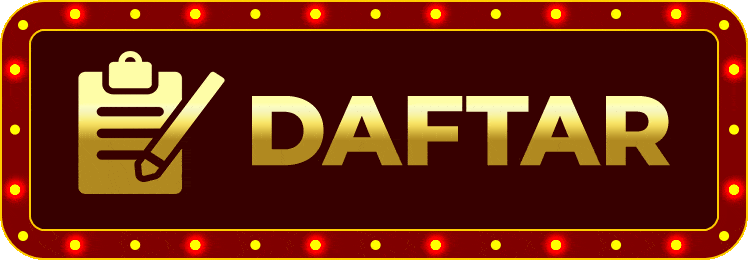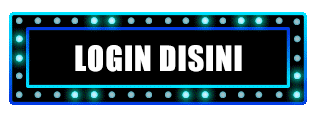Daftar Akun Gates Of Olympus
Main Slot Gates Of Olympus | Daftar Akun Pragmatic Play | Bocoran Pola Slot Gacor Zeus Hari Ini +
Main Slot Gates Of Olympus | Daftar Akun Pragmatic Play | Bocoran Pola Slot Gacor Zeus Hari Ini +
Couldn't load pickup availability
Main Slot Gates Of Olympus | Daftar Akun Pragmatic Play | Bocoran Pola Slot Gacor Zeus Hari Ini +
Selamat datang kepada semua kawan kawan yang ingin mencari akun pragmatic play untuk menikmati seluruh game slot gacor olympus hari ini. dimana pragmatic play menyediakan ratusan game slot hari ini tergacor yang bisa kalian temukan dengan memiliki akun slot pragmatic play seperti game gates of olympus slot online. karena permainan judi slot gates of olympus saat ini sangat dicari oleh seluruh penjuru pemain slot online di Indonesia. sebab game slot gacor gates of olympus menyediakan berbagai fitur yang sangat menguntungkan. Jadi dengan memiliki akun pragmatic play pastinya kalian akan mendapatkan layanan yang dapat dimainkan melalui smartphone dengan grafik yang menarik. Jadi slotmania bisa menyaksikan rtp slot gacor dan pola yang dapat dimanfaatkan untuk meningkatkan peluang kemenangan maxwin.
Gates of olympus atau sering disebut slot kakek zeus permainan yang dihadirkan oleh pragmatic play. Tentunya bermain slot gates of olympus kalian harus mencari situs gates of olympus terpercaya. sebab saat ini banyak bandar situs slot gates of olympus yang tidak terpercaya dalam memberikan pola slot gacor hari ini pragmatic play. Dengan ini membuat slotters menjadi rugi dan jauh dari kata maxwin. jadi untuk memudahkan para bettor untuk mencari link slot gates of olympus kami sebagai bandar situs gates of olympus memberikan akun pragmatic play yang bisa didapatkan dengan daftar akun pragmatic play. Jadi bagi pemain gates of olympus zeus jika kalian ingin mengetahui cara buat akun pragmatic play, cara main slot gates of olympus biar menang, serta menyaksikan pola main slot gates of olympus kalian bisa membaca artikel ini sampai habis.
Tips Dan Trik Main Gates Of Olympus Paling Ampuh Menang Maxwin
Main Gates Of Olympus juga memilki tips dan trik yang sangat ampuh untuk mendapatkan jackpot dengan sangat gampang dan untuk meningkatkan peluang kemenangan lebih signifikan. Tentunya para pemain sangat ingin mengetahui cara main slot gates of olympus biar menang dengan ini kami akan memberikan trik jitu main slot gates of olympus seperti:
- 1. Analisa RTP Slot Gacor Dan Pola
pola slot gacor hari ini pragmatic dan persentase rtp slot sangat menjadi informasi yang paling diidam idamkan banyak slotmania. Akrena dengan menganalisa rtp dan pola slot gacor kalian bisa memenangkan game gates of olympus pragmatic play secara mudah dan gampang.
- 2. Pakai Strategi
Meskipun memainkan game gates of olympus memerlukan keberuntungan tetapi dengan menggunakan strategi ini bisa membantu untuk meningkatkan peluang kemenangan besar.
- 3. Tetapkan Target Kemenangan
Dengan menetapkan target kemenangan kalian bisa berhenti ketika sudah mencapai batas dalam memenangkan main gates of olympus jika tidak melebihi target bisa dipastikan kalian akan rungkat.
- 4. Gunakan Fitur Demo
Sebelum main slot gates of olympus rupiah alangkah baiknya petaruh slot online gacor mencoba terkebih dahulu akun demo slot pragmatic play. Karena fitur ini sangat membantu anda untuk menemukan pola gacor slot gates of olympus hari ini dan mengenal lebih dalam tentang gaya permainanya.
- 5. Manfaatkan Bonus
Selain itu manfaatkan fitur bonus juga tidak kalah gacor. karena dengan fitur bonus pada gates of olympus zeus free spin kalian bisa beberapa kali memutar gulungan secara gratis tanpa mengeluarkan uang sedikitpun.
Daftar Akun Pragmatic Play Dengan Link Gates Of Olympus Slot
jika slotmania ingin mencari uang tambahan dengan bersantai di rumah saja. kalian bisa memainkan gates of olympus slot pragmatic tetapi anda harus memiliki akun gates of olympus dengan cara daftar Akun Pragmatic Play . Jika kalian tidak mengetahui untuk daftar akun gates of olympus kami akan memandu anda untuk mendapatkan akun pragmatic resmi dengan link gates of olympus slot sebagai berikut:
- 1. Langkah pertama kunjungi link gates of olympus slot di google
- 2. Klik daftar yang sudah terpampang dihalaman utama
- 3. Masukan seluruh data diri username, password yang mudah untuk diingat
- 4. Isi metode pembayaran yang dimiliki anda untuk berdeposit dan withdraw
- 5. Jika sudah selesai klik daftar
Setelah sudah berhasil mendapatkan akun gates of olympus pragmatic maka lakukan login gates of olympus untuk masuk kedalam halaman utama. Kemudian lakukan deposit untuk dapat main slot gates of olympus tentunya bagi slotters yang tidak memiliki bank lokal kami juga menyediakan jenis transaksi ewallet dan pulsa. link slot gates of olympus juga menyediakan layanan customer service terbaik yang siap melayani anda selama 24 jam untuk mengatasi kendala ketika main pragmatic gates of olympus.
Temukan Bocoran Pola Slot Gacor Zeus Hari Ini Didalam Pragmatic Gates Of Olympus
Bocoran Pola Slot Gacor Zeus hari ini bisa didapatkan didalam pragmatic gates of olympus yang merupakan fitur paling diincar oleh banyak pecinta permainan gates of olympus slot Indonesia untuk menemukan maxwin secara mudah. terlebih lagi provider pragmatic plau memberikan game slot online terbaru dan terpopuler dengan fitur yang melimpah. Jadi sudah tidak diherankan jika game slot gacor online yang dihadirkan pragmatic sangat populer seperti pada slot kakek zeus atau grates of olympus gacor yang bisa kalian mainkan secara aman dan terpercaya untuk dimainkan setiap hari..
Fitur Fitur Paling Bermanfaatkan Ketika Main Slot Gacor Gates Of Olympus
Slot Gacor Gates Of Olympus adalah mesin slot yang paling banyak dicari saat ini. dengan fitur segudang yang bisa dimanfaakan untuk memenangkan gates of olympus slot pragmatic. Tentunya fitur ini banyak pemain awam yang masih belum mengetahuinya seperti:
- 1. Free spin
Free spin memiliki arti gratis putaran yang bisa didapatkan dengan mendapatkan 4 simbol sejajar . tentunya free spin sangat diincar pejudi slot hari ini.
- 2. Scatter
Simbol scatter merupakan fitur paling menarik dari main gates of olympus karena hadiah scatter memberikan gratis free spin dan hadiah scatter sangat besar.
- 3. Multiplier
Multiplier atau dikatakan perkalian bonus yang diberikan kepada petaruh slotmania yang beruntung. Tentunya jumlah multiplier akan diberikan secara berbeda beda seperti gates of olympus x500 dan gates og olympus 1000.
Daftar Akun Gates Of Olympus

- Choosing a selection results in a full page refresh.
- Opens in a new window.


